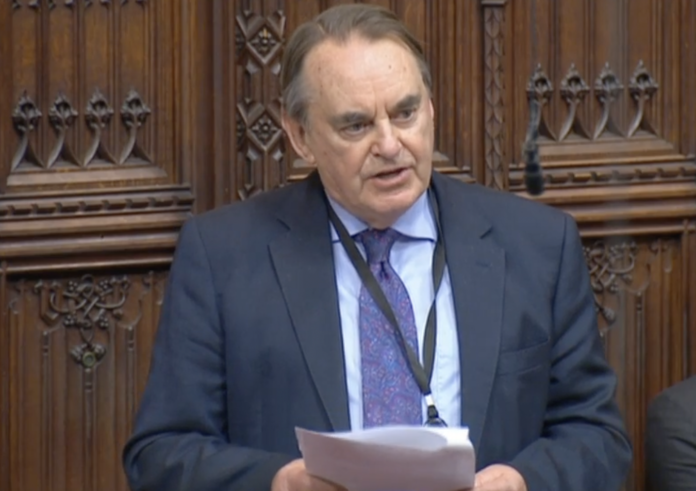LONDON: Lords from the Conservative and Labour parties have slammed the UK Home Office’s plans to overhaul the country’s asylum system, taking specific aim at the government’s plan to process asylum seekers in offshore centers.
On Tuesday, dozens of members of the House of Lords put forward their amendments and critiques of the controversial Nationality and Borders Bill, which would overhaul how the UK treats asylum seekers arriving on its shores.
Among the bill’s critics is Lord Timothy Kirkhope, a Conservative peer who previously served as undersecretary of state for immigration at the Home Office.
Kirkhope, who has led numerous inquiries into UK immigration and asylum rules, said plans to process asylum claimants in offshore centers are neither practical nor moral.
“We still don’t know which country might be willing to act as a hub. Albania and Norway have … rejected the offer, Rwanda may or may not be in the running, and there are rumors of Ascension Island — a place with no infrastructure, no means of direct access and no links to the outside world,” he added. “We also don’t know how the migrants might be treated once they’re there.”
He pointed out that conditions imposed on migrants in Papua New Guinea and Nauru as a result of Australia’s own offshore detention policy — which Kirkhope called a “failure” — have long been criticized.
Those migrants have faced mistreatment and indefinite detentions lasting up to eight years, and the centers have been described by the UN as “cruel and inhuman.”
Kirkhope said the costs of an offshoring plan would be “exorbitant,” and current conservative estimates place the cost at ?2 million ($2.7 million) per person per year.
“We’re talking about a bill running into the tens of billions of pounds. It’s an astronomical sum of taxpayers’ money to pump into a project so fraught with problems,” he added.
“Offshoring is an extreme solution which is practically flawed, morally dubious and destined to fail.”
Similarly, Lord Bishop of Durham Paul Butler said: “When people arrive on our shores seeking protection, we have a responsibility to treat them as we’d wish to be treated if we had to flee for our lives.
“It’s right that we have a process to determine who meets the criteria for refugee status, but while we determine this, we’re responsible for the peoples’ safety, welfare and care.
“If we move them to other countries for the processing of their asylum claims, I very much fear a blind eye will be turned to their treatment.” He asked: “How will we be sure they’re being treated humanely and fairly?”
Other elements of the bill have also faced significant pushback from peers and civil society groups.
Among the most controversial changes is the provision made that would legalize “pushbacks” against people crossing the English Channel in small boats.
Human Rights Watch on Tuesday slammed the Home Office for trying to legalize that approach, saying it would be “morally reprehensible,” while pointing out that the Border Force and Royal Navy have both refused to implement the policy.
HRW added: “Pushbacks will also not stop dangerous Channel crossings or end people smuggling; they will only compel individuals to take more dangerous and hidden routes and increase the demand for smugglers and risk of trafficking for already vulnerable people.”
The bill has also been criticized by the UN, which said, if passed, it would “penalize most refugees seeking asylum in the country” and therefore “undermines established international refugee protection rules and practices.”
Lords’ amendments to the bill will next be considered by Parliament. The House of Lords does not have the power to veto laws, but it can suggest amendments and influence the trajectory of a piece of legislation.
Despite the controversy surrounding the bill, the government has remained steadfast in its attempts to crack down on UK-bound asylum seekers and migrants.

